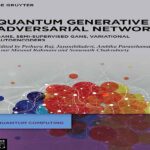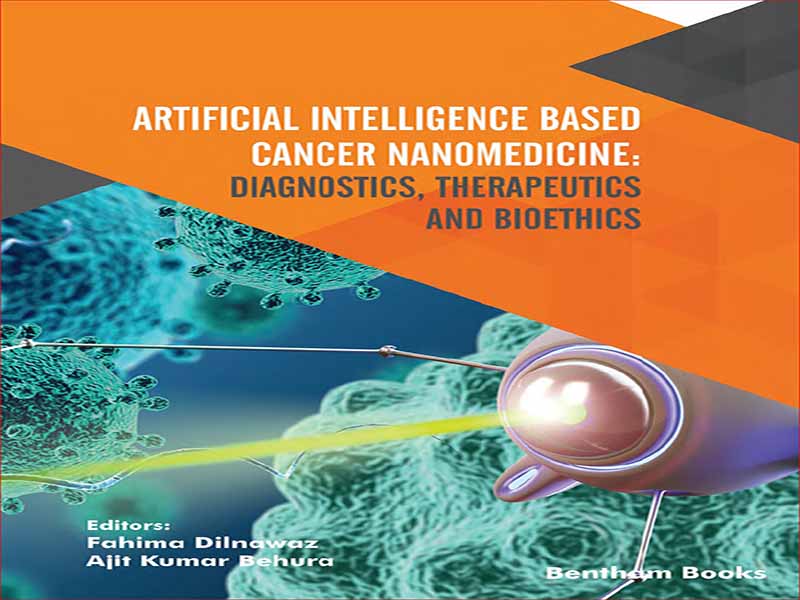- عنوان کتاب: Artificial Intelligence Based Cancer Nanomedicine / Diagnostics, Therapeutics and Bioethics
- نویسنده: Fahima Dilnawaz
- حوزه: نانوپزشکی
- سال انتشار: 2022
- تعداد صفحه: 110
- زبان اصلی: انگلیسی
- نوع فایل: pdf
- حجم فایل: 11.82 مگابایت
حوزه نانوپزشکی با فرمولاسیون دارو و رویکردهای چند منظوره آنها در حال تکامل است تا در عملکرد درمانی و تشخیصی خود هوشمندانه عمل کند. درمان دارویی مبتنی بر نانوپزشکی معمولاً با دوز ثابت بررسی می شود. که چالشهای مداوم را در هر نقطه از زمان ایجاد میکند، زیرا هم افزایی دارو وابسته به زمان، وابسته به دوز و علاوه بر آن بیمار خاص است. برای غلبه بر این چالش، استفاده از هوش مصنوعی (AI) همراه با نانوپزشکی میتواند به عنوان ابزاری کمکی برای بهینهسازی پارامترهای دارو و دوز باشد. تبدیل بین این دو زمینه، ارتقای جمعآوری دادههای بیمار، طراحی بهبود یافته نانومواد را امکانپذیر میسازد. در سرطان، رفتار ناهمگونی درون توموری بالا و بین بیمار برای برنامه ریزی برای یک طرح درمانی منطقی بسیار دشوار است و تجزیه و تحلیل بیشتر خروجی آنها بسیار دشوار است. در این سناریو، کاربرد و ادغام رویکردهای مبتنی بر هوش مصنوعی مانند مدلهای تحلیل الگو و الگوریتمها میتواند شکاف را برای بهبود دقت تشخیص و درمان پر کند. با کمک الگوریتم های هوش مصنوعی می توان مجموعه داده های بزرگی را پردازش کرد، از الگوهای پیچیده می توان برای بهبود طراحی مبتنی بر فناوری نانو برای تشخیص و درمان سرطان استفاده کرد. استفاده از نانوپزشکی دقیق سرطان بسیار ضروری است زیرا هر بیمار منحصر به فرد است. گروههای بیمار دارای تفاوتهای مختلفی مانند سن، جنسیت، قد، رنگ چشم، گروه خون و همچنین علائم مولکولی منحصربهفرد هستند که منجر به تغییرات فنوتیپی متفاوت و طیف وسیعی از پاسخهای دارویی در بین بیماران میشود. علاوه بر این، بیماران با توجه به دوزهای مورد نیاز برای دستیابی به هم افزایی دارویی، و درجه مطلوب قرار گرفتن در معرض دارو برای رسیدن به نتایج درمانی بهینه، به طور قابل توجهی متفاوت هستند. بهینه سازی دوز در انکولوژی بسیار ضروری است، اغلب کاهش دوز برای مدیریت سمیت مربوط به درمان انجام می شود و در حالی که آن را به یک عمل بالینی برای ایجاد دوز تبدیل می کند، با چالش های کلیدی روبرو می شود. این نوع چالش ها را می توان از طریق پیشرفت های اخیر در هوش مصنوعی برطرف کرد. در این راستا، هوش مصنوعی نقش مهمی در تطبیق این فضا با یک پاسخ درمانی عملی ایفا می کند.
Nanomedicine field is evolving with drug formulation and their multifunctional approaches to act smartly in its therapeutic and diagnostic function . Nanomedicine-based drug therapy, are normally explored at a fixed dose. Which creates insistent challenges at any given point of time as, the drug synergy is time-dependent, dose-dependent and moreover patient-specific. To overcome this challenge application of artificial intelligence (AI) along with nanomedicine can serve as a helping tool for optimizing the drug and dose parameters. Conversion between these two fields enables upgradation of patient data acquisition, improved design of nanomaterials. In cancer the high intratumor and interpatient heterogeneity behaviour is quite difficult to plan for a rational therapeutic design and further to analyse their output is extremely difficult. In this scenario application and integration of AI based approaches such as pattern analysis and algorithms models can bridge the gap, for improved accuracy of diagnostics and therapeutics. With the help of AI algorithms large datasets can be processed, complex patterns can be exploited for improvement of nanotechnology based design for cancer diagnostics and treatments. Application of precision cancer nanomedicine is highly essential as every patient is unique. Patient groups have varied differences, such as age, gender, height, eye color, blood type as well as unique molecular signatures, which leads to different phenotypic changes and wide-ranging of drug responses amongst patients. Further, patients vary substantially with regard to the dosages needed to attain drug synergy, and desirable degree of drug exposure to reach optimal treatment outcomes. Optimization of dosing in oncology highly essential, often dose reductions are implemented to manage treatment-related toxicity and it faces key challenges while translating it to a clinical practice for dosing establishment. This type of challenges can be addresses via recent advances in AI. In this regard, AI plays a critical role in reconciling this space into an actionable treatment response.
این کتاب را میتوانید از لینک زیر بصورت رایگان دانلود کنید:



































نظرات کاربران